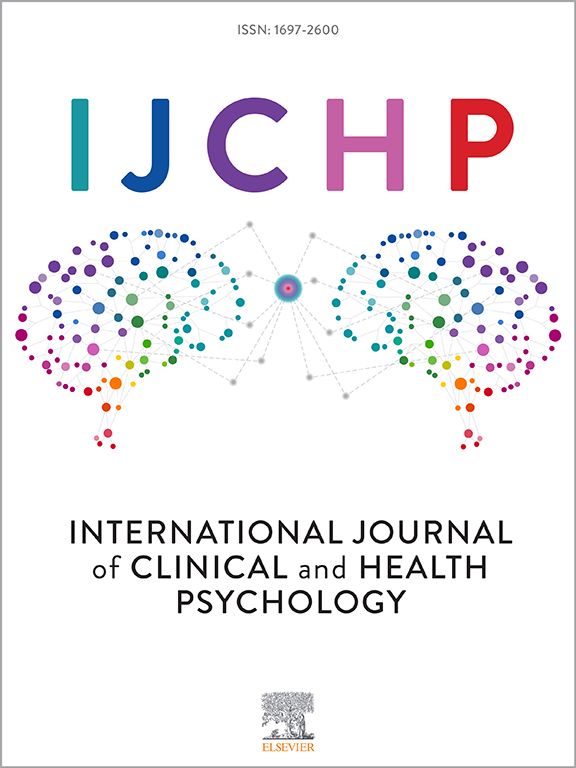中年心率变异性与认知能力下降:大型纵向队列研究
IF 5.3
1区 心理学
Q1 PSYCHOLOGY, CLINICAL
International Journal of Clinical and Health Psychology
Pub Date : 2024-10-01
DOI:10.1016/j.ijchp.2024.100518
引用次数: 0
摘要
背景自主神经功能障碍在痴呆症中很常见,但其对神经认知变化的影响仍不清楚。我们研究了以心率变异性为指标的中年心脏迷走神经调节是否与既往无冠心病或中风的成年人随后的认知能力下降有关。对第五期(1997-1999 年)、第七期(2002-2004 年)和第九期(2007-2009 年)的数据进行了分析。通过对记忆力、推理能力、词汇量和流畅性进行评估测试,确定了总体认知功能。我们采用了基于 12 导联心电图的心率变异性测量方法,该方法主要反映迷走神经的调节作用(即 RMSSD 和 HF-HRV)。结果表明,迷走神经介导的心率变异测量与整体认知功能的快速下降之间存在一致的联系。具体而言,低RMSSD和HF-HRV(最低与较高的四个五分位数)分别与0.07 SD(95% CI:-0.13, -0.01)和0.06 SD(95% CI:-0.12, -0.004)的10年认知功能加速下降相关,且在社会人口学调整后,年龄越大下降越快。进一步调整生活方式因素、药物使用情况和其他心脏代谢状况并没有改变研究结果。据估计,与同龄人相比,低RMSSD和HF-HRV患者的认知能力下降速度每十年分别快3年和3.5年。此外,RMSSD 低的参与者在随访时认知功能低下(最低五分位数)的几率要高出 37%(OR 1.37:95% CI,1.03,1.80)。低心率变异性是一种潜在的生物标志物,表明认知能力的加速衰退可能会持续数十年。本文章由计算机程序翻译,如有差异,请以英文原文为准。
Midlife heart rate variability and cognitive decline: A large longitudinal cohort study
Background
Autonomic dysfunction is common in dementia, yet its contribution to neurocognitive changes remains unknown. We investigated whether midlife cardiac vagal modulation, indexed by heart rate variability, associates with subsequent cognitive decline in adults without prior coronary heart disease or stroke.
Methods
The sample comprised 2702 (1924 men) individuals initially aged 44–69 years from the UK Whitehall II cohort. Data from the fifth (1997–1999), seventh (2002–2004) and ninth (2007–2009) phases were analysed. Global cognitive function was ascertained from tests assessing memory, reasoning, vocabulary, and fluency. We used 12-lead-ECG-based heart rate variability measures, that primarily reflect vagal modulation (i.e. RMSSD and HF-HRV). Linear mixed-effects models and logistic regression were employed.
Results
Results showed consistent associations between both vagally-mediated HRV measures and faster decline in global cognitive function. Specifically, low RMSSD and HF-HRV (lowest versus upper four quintiles) were associated with 0.07 SD (95% CI: -0.13, -0.01) and 0.06 SD (95% CI: -0.12, -0.004) accelerated 10-year cognitive decline after sociodemographic adjustments and faster decline in older ages. Further adjustments for lifestyle factors, medication use and other cardiometabolic conditions did not change the findings. Cognitive decline in individuals with low RMSSD and HF-HRV was estimated to progress 3 and 3.5 years faster per decade, respectively, compared to their counterparts. Additionally, participants with low RMSSD had 37% higher odds of low cognitive function (lowest quintile) at follow-up (OR 1.37: 95% CI,1.03, 1.80).
Conclusion
Our findings support the aetiological significance of the autonomic nervous system, specifically vagal modulation, in the processes of cognitive decline and neurodegeneration. Low heart rate variability emerges as a potential biomarker indicative of acclerated cognitive decline that may extend over decades.
求助全文
通过发布文献求助,成功后即可免费获取论文全文。
去求助
来源期刊

International Journal of Clinical and Health Psychology
PSYCHOLOGY, CLINICAL-
CiteScore
10.70
自引率
5.70%
发文量
38
审稿时长
33 days
期刊介绍:
The International Journal of Clinical and Health Psychology is dedicated to publishing manuscripts with a strong emphasis on both basic and applied research, encompassing experimental, clinical, and theoretical contributions that advance the fields of Clinical and Health Psychology. With a focus on four core domains—clinical psychology and psychotherapy, psychopathology, health psychology, and clinical neurosciences—the IJCHP seeks to provide a comprehensive platform for scholarly discourse and innovation. The journal accepts Original Articles (empirical studies) and Review Articles. Manuscripts submitted to IJCHP should be original and not previously published or under consideration elsewhere. All signing authors must unanimously agree on the submitted version of the manuscript. By submitting their work, authors agree to transfer their copyrights to the Journal for the duration of the editorial process.
 求助内容:
求助内容: 应助结果提醒方式:
应助结果提醒方式:


